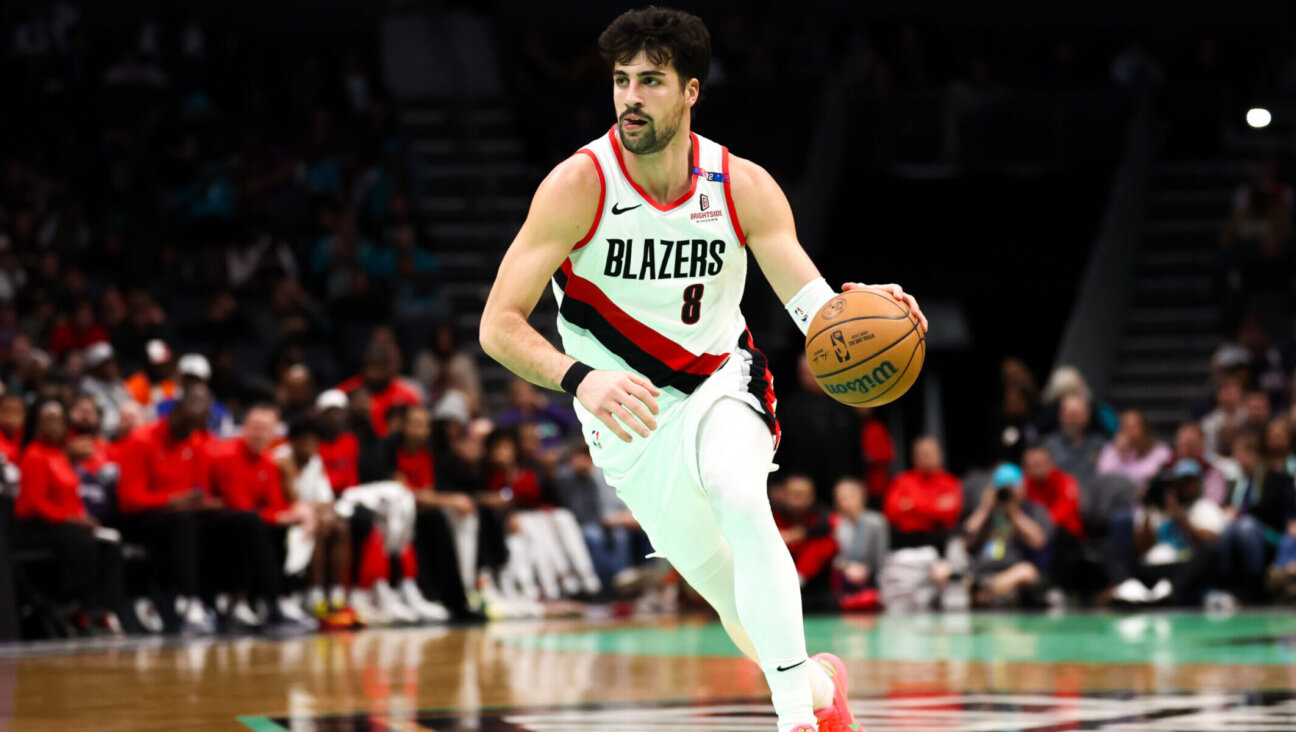A Booth of One’s Own
For Sukkot:
Leviticus 22:26-23:44;
Numbers 29:12-16.
The haftarah:
Zechariah 14:1-21.
——-
The sukkah, ordered over the Internet and erected with some bickering, had collapsed once already.
“Flanders,” said his sister, Ruth. “Will you come out here, please? Careful, Rolph. And Nadine, please don’t play with your dairy.”
Flanders got up, strolled to the window and peered out at the little group on the fire escape. Their sukkah seemed a flimsy sort of hut, with open flaps for walls. His sister’s daughter, Nadine, sat pushing a spoon of whitish yogurt across her plate. “I’m not playing. I’m saving you for later,” she told it.
“Just don’t think this is about God,” she added, lifting her head. “Mom had a difficult childhood, what with being Uncle Anders’s sister and all, and now she wants us happy. Only, this isn’t such a good time for happiness, is it?”
Nadine, a recovering anorexic, had recently agreed to see a therapist. By “good time” she might have meant her illness, or her parents’ separation or, perhaps, the deaths of thousands across a river. Two years had passed since the 11th of September.
“I’m cold,” announced Nadine’s brother, Rolph. “Whose idea was this — booth?”
“He says he’s cold,” began Nadine. “Actually — ”
“Put some clothes on,” chimed Ruth and her new friend, Flo. Flo had been an Episcopal sort of Anglo-American person, but since her conversion, she cited rabbis on a dime. She didn’t seem to mind antagonizing people — certainly not Ruth’s children, whose Prussian-Jewish-American father despised things “too Jewish.” Couldn’t Ruth tell it wasn’t easy for them? Nor for Flanders — bachelor Flanders, who’d never, before his sister and her children and their suitcases had arrived, given up a writing morning for family? For angst, yes. For meditation, also thumbing through yellow pages. There must be somewhere, he thought. Somewhere they won’t think to find me.
“According to Rashi,” Flo was citing even now, “the word ‘booth’ refers to the Cloud of God that surrounded the Israelites in the desert. And the 70 slaughtered animals — ”
“— but really, Rolph’s attention-starved,” said Nadine. “Did she say 70?”
“Don’t touch that,” Ruth and Flo exclaimed. Rolph, who’d begun to stretch, lifted his hand from where two planks almost met.
“Flanders, will you at least get your nephew’s sweatshirt? You’re not writing again, are you?”
“Actually, these days are chol-ha-mo-ed,” enunciated Flo, “like the intermediate days of Passover.”
“Is Passover that holiday when nobody eats?” asked Nadine, wistfully.
“Don’t lean on that!” someone shouted. But Rolph had lunged for the sweatshirt hurtling through the window, and the sukkah, for lack of two steel connectors and one screw, went down again.
“Flanders,” Ruth called. “Come see how womanly this fruit is.”
Night had fallen over Filibuster Street. Flo had gone home. Rolf hulked in his uncle’s study — his uncle’s study! — playing rotisserie baseball. Flanders could just make out Ruth’s misty eyes through the leafy opening. “Isn’t it?” she asked, and motioned to the pale round in her lap. Was her voice tremulous? Flanders ducked his head, and climbed carefully through the window.
“What’s this all about, Ruth?”
“We’re pretending it’s an etrog,” she explained. He stood up. He didn’t quite enter the sukkah. The night air was liquid cool and a loam smell rose from below. “It goes against reason, doesn’t it? Just when the weather turns — to sit out under the stars? It makes you think about — well, buildings. Time. Life in death and death in life.”
“I don’t see any stars,” said Flanders, peering. Clouds lay over Brooklyn. But a cat stalked, on white-stockinged feet, atop a picket fence.
“Sometimes I want to give this all up,” Ruth admitted. “All that ancient sacrifice, and those whores of Babylon. But then I learn something. Like the way the rabbis have chosen what to read, when.”
The rabbis, thought Flanders. He heard footsteps then. They were light footsteps.
“Take Sukkot. The Torah portion tells us when to celebrate, and how. On the first Shabbes, we also read Zechariah’s vision — like Flo says.”
“Mom,” called a reedy voice, as if someone were standing by the window.
“But we also read Kohelet, aka Ecclesiastes, who got tired of — life — and turned to God. For shelter. And the next day, we read about how Solomon will build the Temple. And Rabbi Akiva doesn’t agree with Rashi. He says the nations have to live together. Even in Zechariah, they all go up to Jerusalem and beg God for the Torah. And God tells them just to sit in booths. It’s not His fault — ”
“Mom,” called Nadine. “You might want to keep me company while I eat this.”
Ruth got up then, and brushed past her brother. “It’s good to rebuild,” she announced, handing him the etrog (really it was a lemon) and stepping through the window.
She sat now at the kitchen-dining room table with her daughter.
From the fire escape, Flanders stood watching them: two humanoid shapes in yellow light. In spite of his vocation, he leaned closer.
“This isn’t going to hurt a bit,” Nadine was busily explaining to her yogurt, which had escaped the first collapse of the sukkah, and the second.
Beth Bosworth is the author of “A Burden of Earth and Other Stories” and of the recently released novel, “Tunneling Down” (Crown, 2003). She is at work on an episodic novel featuring the anti-anti-hero, Anders Flanders.
















